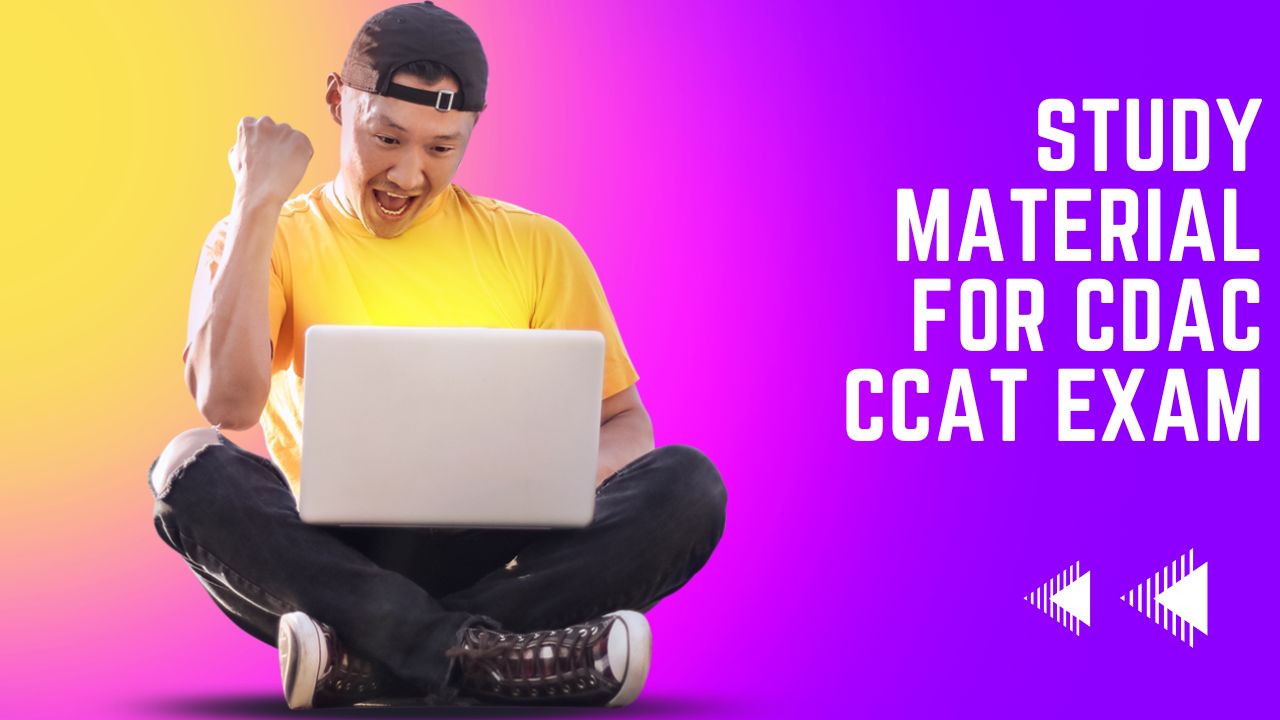
Study Material for CDAC CCAT Exam :Here is the Study Material for CDAC CCAT Exam that are going to be helpful in the long run.
|
SECTION |
TOPIC |
REFERENCE BOOK |
|
A |
English |
Any High School Grammar Book (e.g. Wren & Martin) |
|
Quantitative Aptitude & Reasoning |
Quantitative Aptitude Fully Solved (R. S. Aggrawal) Quantitative Aptitude (M Tyara) Barron’s New GRE |
|
|
Computer Fundamentals & Concepts of Programming |
Foundations of Computing (Pradeep Sinha & Priti Sinha) |
|
|
B |
C Programming |
C Programming Language (Kernighan & Ritchie) Let Us C (Yashavant Kanetkar) |
|
Data Structures |
Data Structures Through C in Depth (S. K. Srivastava) |
|
|
Operating Systems & Networking |
Operating System Principles (Silberschatz, Galvin, Gagne) Data Communication & Networking (Forouzan) |
|
|
OOP Concepts |
Test Your C ++ Skills (Yashavant Kanetkar) |
|
|
Basics of Big Data & AI |
Fundamentals of Data Engineering (Joe Reis, Matt Housley) Artificial Intelligence for Dummies (John Paul Mueller, Luca Massaron) |
|
|
C |
Computer Architecture |
Computer Organization & Architecture (William Stallings) |
|
Digital Electronics |
Digital Design (Morris Mano) Digital Design: Principles & Practices (John Wakerly) Modern Digital Electronics (R. P. Jain) |
|
|
Microprocessors |
Microprocessor Architecture, Programming & Applications with 8085 (Ramesh Gaonkar) The Intel Microprocessor (Barry Brey) |
Section A Study Material :R.S Aggarwal is wise choice. R.S Aggarwal will give you grip on the concepts. It will also helps for your campus placements as well.[NOTE:Many of the questions were directly lifted from IndiaBix. Not even the order of the choices was altered. For aptitude, logical, and OS theory problems, you may prefer this website]
Section B Study Material :
- C Programming (Let Us C by Yashavant Kanetkar):One of the most stunning languages you will ever come across is C. The ideal book for you is probably “Let Us C” if you haven’t read any programming languages before and believe that they are like a black witch’s spell. The simplicity and content of the book are astounding. Try to take something away from each line, please.[NOTE : Examine the topics, complete the exercises provided after each topic, and visit the “Find The Output” area of IndiaBix.com’s C Programming section.]
- Data Structures (Data Structures Through C in Depth (S. K. Srivastava):Since I’m assuming you’re a total beginner, I’d advise starting with the book Data Structure via C in depth. Starting from scratch is the ideal approach for this book. Nearly all of the codes you need to know are in the book, and everything is described clearly and simply. This will help you comprehend various challenges and the theory behind data structures.[NOTE : Look after the evaluation of postfix, infix and prefix, also preorder, inorder and postorder tree traversals.]
- Oops Concepts (Test Your C ++ Skills (Yashavant Kanetkar):Oops Concepts are core for any programming language, it’s an advanced version of C Programming language .This book covers each and every oops concept in a simple way.[NOTE:websites like Tutorialspoint have really good explanations]
- Operating Systems (Operating System Principles by Silberschatz, Galvin, Gagne)[NOTE:They also ask a lot of questions on UNIX operating systems, watch online videos (YouTube) which helps you to understand the basic concept easily and if you are from NON-CS background]
- Data Communication & Networking ( Data Communication & Networking (Forouzan)
Topics you should focus for CDAC CCAT
-
C-Language:
Simple Operators Based (Learn Precedence table), if–else (focus on semi colon and paring of if else), loops, recursion, macro, pointers (Variable, Array, String), storage classes (program as well as theoretical ques), static variable concept, structure & union, Find out the Output of given ques, Questions based on Theoretical Concept.
Go through book Test Your C-skills Yashwant Kanetkar which will be very helpful for objective questions related to C Language.
-
Data Structure
:Theoretical Based (Stack, Queue, Linked List, Searching, Sorting), Evaluation of Infix Prefix Postfix,Algo Complexities (Mostly asked worst case), Binary Tree Based (Preorder, postorder, inorder).
-
Operating System
:Memory Management, Page Faults, Segmentation, Paging, Deadlock, Fragmentation, Unix /Linux/(Based General Ques), Process States, Dispatcher, Threads.
-
OOPS
:Classes, Objects, Encapsulation, Abstraction, Inheritance, Polymorphism, Static Members, Questions based on C++ program logic.
-
Data Communication & Networking
:Topology, OSI Layers Compare with TCP/IP, Internetworking & Networking devices, Switching Techniques, LAN, MAN, WAN, Addressing (Class- A B C D E), Port Numbers (ftp,http,https,telnet,dns,pop),MAC Address,IPV6 vs IPv4.